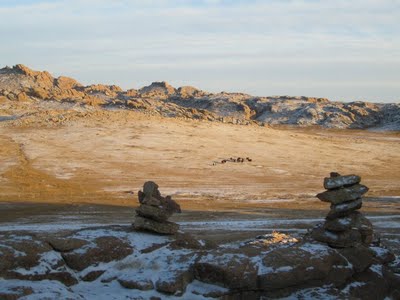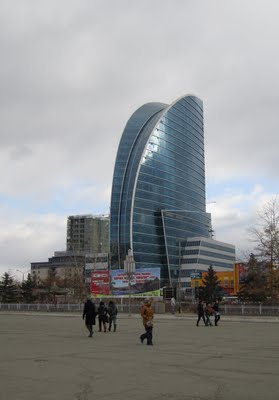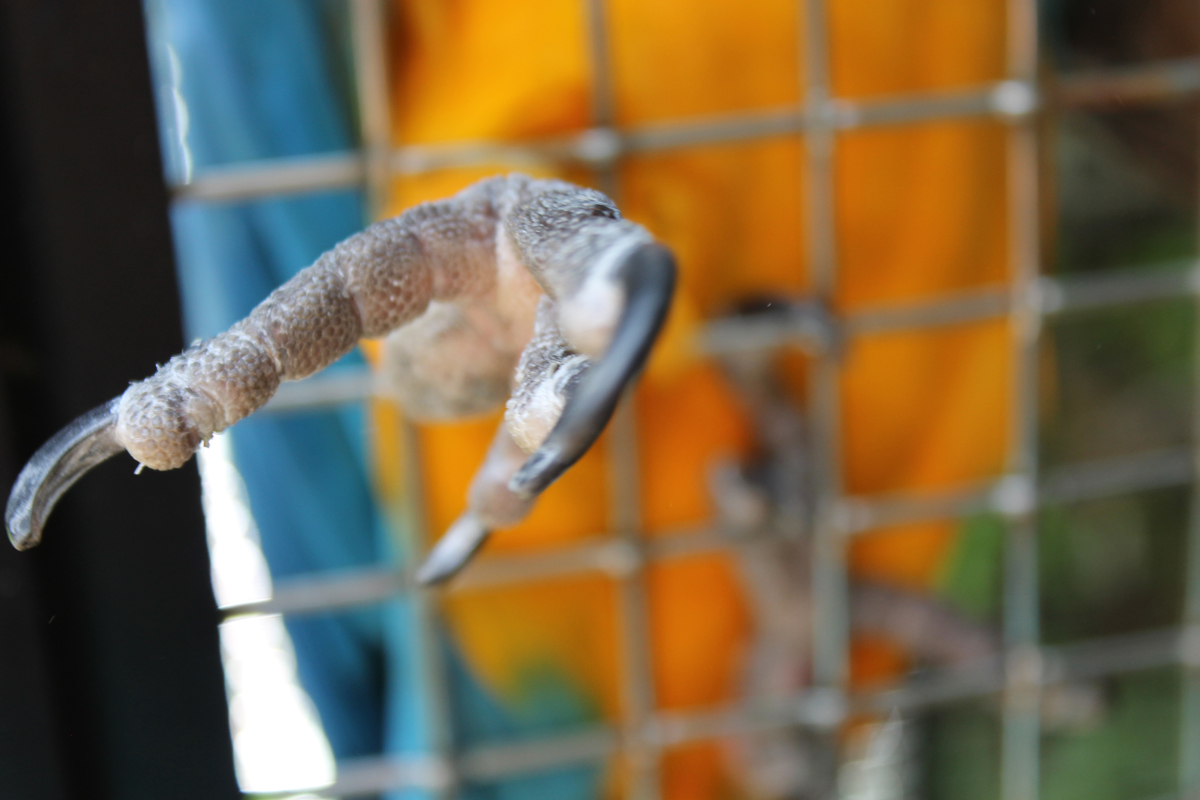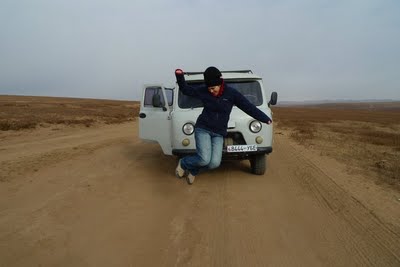I didn’t know all that much about Mongolia before venturing out into its vast and unspoiled steppe. And, I knew virtually nothing about the history of Buddhism in the country and the challenges it faced at the hands of Communist rule.
__________
After filling up (and warming up) on homemade noodle soup, our next stop was a snow-dusted rock outcropping several hours drive away.
We instantly noticed stacks of rocks everywhere.
Deegii informed us that these stacks designated the area as a sacred place.
In the center of the outcropping was the black mouth of a cave.
Monks sought refuge and shelter there as they hid from soldiers during The Persecution from 1937-1939. Though we were all curious to explore the cave, we refrained as it now plays host to a large snake population.
A short drive away were the ruins of Buddhist temple.
Bright blue, tattered silk scarves floated from the trees.
This temple used to house 300 monks; all but a handful were killed by Communist soldiers.
Under Stalin’s order, The Persecution saw the destruction of over 700 monasteries/temples and 30,000 monks were killed or sent to labor camps in Siberia.
For a quiet, respectful and hospitable people, such violent subjugation struck me as completely unnecessary.
The area had a solemn atmosphere and we found ourselves whispering for no apparent reason. And, as if it weren’t cold enough, the place gave me goose bumps.
Even though the temple marked a place of death and destruction, it remained vibrant; perhaps a silent protest to the oppression seen the there.
*For more fab Photo Friday, skip to Delicious Baby!






Absolutely fascinating – I can’t wait to get to Mongolia someday myself!
This is an incredible post – I didn’t know that history – thanks for sharing.
~Becca
Thanks Kymri and Becca – I learned so much about the culture and history that I never would have if I hadn’t visited!
Pingback: Capture the Colour - Flip Flop Caravan